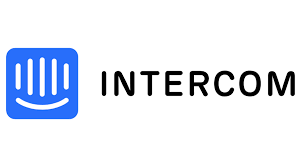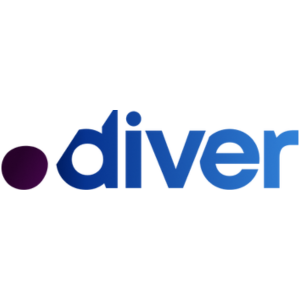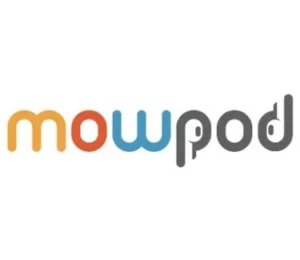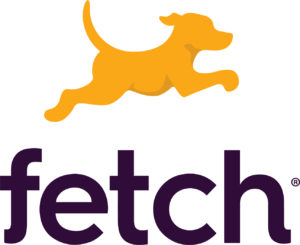LISTEN IN A POD APP
Filters
Sam Tuke | Lightmeter
Avoid SPAM traps
Sam Tuke, Founder and CEO of Lightmeter, talks about email deliverability for scaling sales teams. When executed correctly, email marketing can drive a lot of great results for companies. However, if Google doesn’t consider your content relevant for the intended recipient, your emails are a lot less likely to make it to your prospects’ and…
Play PodcastEmily McGuire | AWeber
Improving newsletter conversion rates — Emily McGuire // AWeber
Emily McGuire, Customer Evangelist at AWeber, discusses email list-building tactics and must know email marketing strategies. As marketers, we compete with so many distractions and have a very short window of time to capture our target audience’s attention. Unfortunately, one of the big mistakes we make when sending out newsletters is forgetting to tell people…
Play PodcastJordan Crawford | Blueprint
Why you can’t personalize any more — Jordan Crawford // Blueprint
Jordan Crawford, Co-Founder of Blueprint, sums up his thoughts on implementing a successful go-to-market strategy. When you reach out to a prospect via email, you ultimately want to get a favorable response. However, many of us have become quite familiar with getting no responses at all. Today, Jordan breaks down why your personalization sucks.
Play PodcastJordan Crawford | Blueprint
How to quantify & score user pain — Jordan Crawford // Blueprint
Jordan Crawford, Co-Founder of Blueprint, shares his knowledge on implementing a successful go-to-market strategy. Figuring out the pain-points of your prospects is only one half of the equation. When you have figured them out, how do you quantify this data? Today, Jordan discusses how to quantify and score your user's pain
Play PodcastJordan Crawford | Blueprint
It’s not your B2B sales team’s fault — Jordan Crawford // Blueprint
Blueprint’s Co-Founder, Jordan Crawford, continues to talk about how you can implement a successful go-to-market strategy. When our go-to-market strategies are unsuccessful, we are quick to blame it on our tools and sales teams. But, should they truly be blamed if they are being forced to operate outside their scope? Today, Jordan makes his case…
Play PodcastJordan Crawford | Blueprint
Why B2B marketing tools always fail — Jordan Crawford // Blueprint
Blueprint’s Co-Founder, Jordan Crawford continues to talk about how you can implement a successful go-to-market strategy. When it comes to B2B tools, most marketers skip the crucial step of defining their models. The problem may not even be the tools, just the ways they are being used. So, today Jordan investigates why B2B marketing tools…
Play PodcastJordan Crawford | Blueprint
B2B outbound is jacked — Jordan Crawford // Blueprint
Co-Founder of Blueprint, Jordan Crawford, talks about what you need to implement a successful go-to-market strategy. B2B marketers could be spending more time on platinum accounts instead of gold ones. But, their tools and training may be holding them back. Today, Jordan, looks into why B2B outbound is jacked.
Play PodcastScott Brinker | Hubspot
2022 MarTech Predictions: Ecosystem Expansion — Scott Brinker // Hubspot
Scott Brinker, VP of Platform at HubSpot, wraps up discussion on his predictions for 2022. For years, a critical pain-point of the MarTech industry was the lack of integration. MarTech products in the last few years have launched with integration capabilities. With this trend expected to continue throughout 2022, Scott looks at the rise and…
Play PodcastScott Brinker | Hubspot
2022 MarTech Predictions: B2B Commerce Revolution — Scott Brinker // Hubspot
VP of Platform at HubSpot, Scott Brinker, looks into changing B2B buyer habits. The pandemic caused a massive shift in the way we all do business. For B2B companies, there was a move away from traditional in-person sales to video conferencing and other digital means. So today, Scott covers the B2B Commerce revolution.
Play PodcastScott Brinker | Hubspot
2022 MarTech Predictions: Advancement of No Code Tech — Scott Brinker // Hubspot
VP of Platform, Scott Brinker, from HubSpot, explores how No-Code tools are improving. While non-technical users see the merit of No-Code technology, IT teams and Marketing Ops have long been suspicious of them. If these tools were to be designed with data security and compliance features, we could see more widespread adoption of this technology…
Play PodcastAbout Marketing Channel: Email Marketing
Why is Email Marketing Important?
Emails have existed since the inception of the internet, becoming the standard for digital communication long before social media existed. Email marketing as we know it today became one of the leading forms of digital marketing and grew in prominence alongside the establishment of the ecommerce industry.
Email marketing is the highest converting digital marketing tactic to date and boasts high ROI. Marketers leverage its low operating costs to reach consumers worldwide. The average email ROI averages between $37 to $44 for every $1 spent. It still drives the majority of conversions despite growing competition from high engagement social media platforms like Facebook or Twitter.
Email campaigns perform exceptionally well on mobile devices too. According to Litmus, 54% of emails are primarily opened and read on mobile devices. Marketers can reach mobile users much easier with email marketing services.
Email marketing services like SendGrid provide even more ROI. SendGrid only charges $0.0006 cents per message at their Platinum Marketing Email tier and Mail Chimp allows users to send 12,000 emails a month free before they begin charging.
No digital marketing strategy is complete without email marketing. A strong email marketing strategy is essential to supplement a competitive overall digital marketing strategy.
Growing an Email List
Acquiring customer emails and growing your email list is fundamental to email marketing. Obtaining customer email addresses requires following ethical business standards. Sending non-solicited emails and spam are illegal in most cases. Failure to follow business standards can result in severe legal repercussions for your business.
Consumers must be able to opt-in to receive emails. This means prospects give their permission to you to access your various offerings, known as lead magnets. A lead magnet is something useful your company provides to consumers in exchange for their information, including email addresses. A form fill is best utilized in this case, where a customer willingly supplies their information to receive access to company content, special offers or free trials.
Examples of company content include performance marketing content like whitepapers, ebooks, newsletters, blog posts, case studies or registration to attend a webinar. Promotions and free trials are also excellent ways to obtain new subscribers or customers. A free trial can immediately turn into a lead, and an email series centered around their trial's duration and assistance offers can quickly move consumers through a conversion funnel.
Opt-in Best Practices
Although spam email rates have decreased over time, many users still get them. Government bodies and business organizations have implemented anti-spam laws and policies to cut down on spam and protect user information from issues like email spoofing attempts. The EU's consumer privacy data protection rules GDPR and the U.S.' CAN-SPAM Act of 2003 are examples of governmental email marketing oversight.
When inviting users to provide their email addresses in exchange for company content and offers, follow best practices to prevent anti-spam violations from occurring. Some email marketing best practices include:
- Keeping form fill fields short and direct.
- Providing easy-to-use offers your subscribers can immediately use.
- Placing a call-to-action button on all form fills.
- Personalizing subject lines to boost open rates.
- Ensuring email subscribers can easily locate opt-out options.
- Making use of segmented email lists to prevent sending irreverent emails.
Opt-ins are the best way to obtain new customers and guarantee higher click-through rates by consumers who are genuinely interested in your products and services.
What is Lead List Sharing?
Lead list sharing is a business-to-business practice, where websites or businesses will share or sell their email lists to help other business obtain new customers. The CAN-SPAM Act places some restrictions on how lists are sold or shared. It's legal to buy or rent email lists in the U.S., but the following legal rules must be followed:
- Don't use misleading subject lines or header information.
- Clearly list opt-out options and mechanisms.
- Provide your company's postal address.
- Label the message as an advertisement.
- Add elements of personalization.
Although email marketing list sharing is a valuable growth hacking method, it blurs the lines between legal and illegal practices. You never know what you'll get with an email list, and most mailing lists are quickly outdated. Email service providers like Gmail, Yahoo and Microsoft keep track of sender reputations, and users who mark your unsolicited emails as spam are easily tracked by them.
List sharing is illegal in most countries like Canada. If you reside outside of Canada but purchase a list containing the emails of Canadian residents, you run the risk of violating Canadian law if you reach out to those emails. A Canadian user must willingly opt-in to receiving your emails for any exchange to be legal.
What is DMARC?
Domain-based Message Authentication, Reporting and Conformance (DMARC) is an email authentication protocol designed to protect email domain owners from unauthorized use, known as email spoofing. When an email fails to pass DMARC protection authentication protocols, the system issues a DNS wherein an email is quarantined or rejected.
It's valuable for email senders and recipients as it informs them when someone may be attempting to impersonate a business or entity. Implementing DMARC as a valuable email marketing tool can improve your email deliverability and lend authenticity to your campaigns. Failure to meet DMARC protocols can severely decrease email open rates.
How to Nurture Email Leads
Nurturing email leads is a particular challenge facing marketers in email marketing. One of the best ways to nurture leads is with a curated email series. An email series includes a chain of sequential emails designed to help progress consumers through the conversion funnel.
Welcome emails are commonly used email campaigns to kick off this process. Welcome emails are generally a series of three emails that confirm you've added an opt-in consumer to your email list. This series of emails are its own campaign, with one designed to remind users of the signup benefits while the next one provides links to your social media or instructions on how to best reach you.
Regularly scheduled content like email newsletters and discount emails help keep your email list engaged with your organization and brand. Specified emails like cart emails, email updates and "Come back," emails are designed to target users at specific stages in your conversion funnel to complete the customer journey. This method is best for e-commerce. Email marketing platforms are useful for categorizing elements of your email list to send the right email type at the right time.
Cold email campaigns are another way to gain email leads and quickly begin nurturing them throughout the conversion process. Cold emails supplement the inbound campaign process but there is a fine line where cold emails become spam. Marketers who use cold email strategies research customer personas first, which ensures they're reaching customers who match their existing customers and are likely to engage with them.
Marketing experts manually prospect potential customers, but email marketing platforms also provide helpful tools to expedite this process. Cold emails need personalization in order to work effectively and avoid becoming spam. Creating custom, enticing subject lines, writing engaging email content and including an email signature will significantly boost your cold email's effectiveness.
Types of Email Marketing Campaigns
The following are the most commonly used campaigns in email marketing.
- The welcome email series
- Standard promotional emails
- Seasonal campaigns
- Triggered email series
- Email newsletters
- Cart emails
- Re-engagement campaigns
- Drip email campaigns
How to Increase Email Open Rates
Personalized emails are a vital component to email marketing strategies. The more personalized an email is, the more likely users will open it. A personalized email often addresses the customer by name either in the subject line or the body content of the email. Email content that offers products or services according to the user's search or previous purchase behavior is highly useful to boosting your email campaign's effectiveness.
Transactional emails are an example of a widely-used personalized email type. They are automated emails between a sender and a recipient. They are typically sent when an event is triggered. They're a common email users expect to receive upon completion of an interaction or a request they've made.
Email marketing services' and their automated tools are generally responsible for sending these types of automated emails. Email templates for specific responses will rapidly autofill subject lines, user names and content.
What is Automated Emailing Software?
Automated email software operates by defined rules your company sets to trigger email responses based on specific actions a consumer takes or doesn't act on. Email automation handles the majority of managing email marketing efforts, taking your website analytics to target consumers based on demographics, past sales and other variables. Email marketing software is a leading tool for executing email marketing strategies.
Automated email software runs your email marketing campaigns behind-the-scenes providing valuable time-savings opportunities for marketers. Email marketing software provides email templates to create hyper-personalized emails, which significantly boosts open rates and keeps new customers engaged. Email templates provide robust customization options, with drag-and-drop email editors that can easily create promotional or transactional emails.
Email marketing software provides performance data of email marketing campaigns. Marketers can see delivery rates, click-through rates, open rates and more to optimize and retarget their email marketing campaigns. Marketing specialists can use email marketing software data to identify ways to re-engage inactive subscribers or create mobile-optimized email content to boost conversion rates.
Types of Email Marketing Services
Email marketing services are essential for modern email campaigns. The top email marketing services include:
- Moosend - Offers unlimited email sends and free email templates.
- Mailchimp - Able to send up to 10,000 emails per month and includes behavioral targeting tools.
- Mailerlite - Allows up to 1,000 subscribers and provides email marketing tools like A/B testing options and embedded sign-up forms.
- CleverReach - Useful features include autoresponders and reminder emails.
- EmailOctopus - Stores statistics up to 30 days and allows for unlimited marketing campaigns.
Ways to Make Email Automation More Effective
Utilizing automated email marketing software correctly is vital to ensure your email campaigns are reaching all the right customers. Email marketing services are the go-to tools for marketing specialists in large or small businesses. They're the most cost-effective way for marketing emails as opposed to managing mailing lists and responses by hand. Ways to improve email automation include:
- Collecting more user information by tracking responses.
- Strategically offering discounts and promotions.
- Deploying automated drip campaigns.
- Quickly engaging to responses from new subscribers.
- Managing email lists to keep them relevant and timely.
How CRM's Manage Email Marketing Campaigns
Customer Relationship Management solutions provide a robust suite of email marketing tools and other associated marketing software. CRM platforms are an effective email marketing solution, enabling marketers to offer personalized, multi-channel marketing campaigns.
A high-quality CRM lets you see every detail of an email interaction a customer has with your business. Support tickets can be easily assigned to triage customer issues or create auto-responder emails to address common issues.
CRMs are valuable for both large and small businesses, as they can utilize its full suite of email building tools to address every customer at once or specifically target individual customers with tailored campaigns. Lead form integration features log user email addresses and can automatically send email communications based on where your prospect is in their customer journey.
Types of CRMs:
- Hubspot
- SugarCRM
- Agile CRM
- Salesforce
- Aritic
- Greenrope
CRM solutions offer a wide array of email campaign management features, but some CRMs lack the full suite of features email marketing software provides. CRMs may provide auto response features, but might lack email builder features like drag-and-drop for email templates.
Although CRMs offer a variety of email marketing tools, you still need email marketing services to fully execute your email campaigns.
Read MoreRead Less
Sponsors of the MarTech Podcast



































